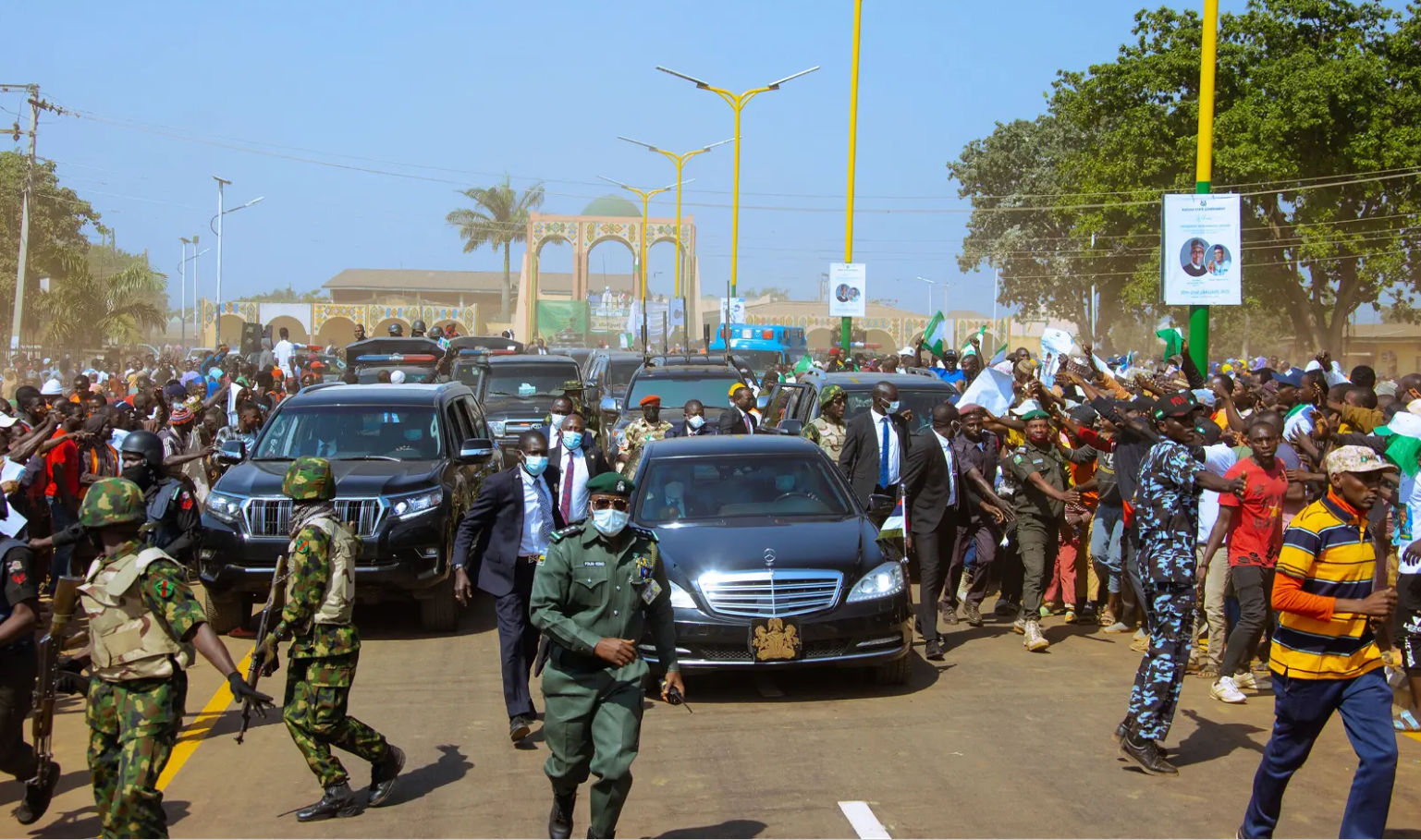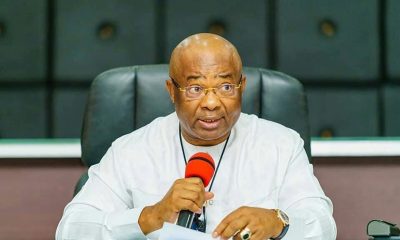Editorial
MATTERS ARISING: Terrorist Attacks On Buhari’s Convoy, Kuje Facility

Recently, terrorists attacked the Kuje Custodial Centre in Kuje, the Federal Capital Territory (FCT) and freed close to 600 inmates, 64 of them Boko Haram terrorists. The attack that lasted for several hours left five people dead including unarmed personnel of the Nigerian Security and Civil Defence Corp (NSCDC) and four inmates. Moving in large numbers on motorbikes, the terrorists were reported to have used explosive devices to bring down the walls of the prison.
According to the facility’s authorities, a total of 879 inmates escaped during the unfortunate attack. 443 have since been recaptured, 551 inmates are currently in custody and 443 inmates are still at large.
The Kuje Correctional facility officials also confirmed four inmates dead, while 16 others sustained various degrees of injuries and are being treated at an undisclosed hospital in the city. After visiting the scene of the attack, the Minister of Defence, Maj Gen. Bashir Magashi (rtd) said of the attackers, “It is most likely they are Boko Haram members because we have sizeable number of Boko Haram suspects in detention, and presently we cannot locate any of them. I think they are about 64 in the prison and none of them now is available. They have all escaped.”
The attack, supposedly carried out by Boko Haram, occurred on the same day terrorists attacked a convoy of an advanced team of security and media aides to President Muhammadu Buhari on their way to Daura, the president’s hometown ahead of the Sallah celebration. Two people were reported injured in the attack. The attack reportedly happened around Dutsinma in Katsina and shows the free reign terrorists now have in the northwest respecting no authority, not even the president, symbol of the country’s unity and legitimacy.
Presidential spokesman Garba Shehu, said in a statement that, “The attackers opened fire on the convoy from ambush positions but were repelled by the military, police and DSS personnel accompanying the convoy. Two persons in the convoy are receiving treatment for the minor injuries they suffered. All the other personnel, staff and vehicles made it safely to Daura.”
This attack gives is a serious cause for concern as it sends a wrong message that perhaps no one is out of reach of the terrorists and that they in fact have the upper hand in the war against terror. That the president wasn’t in the convoy is of little significance. By any measure, this was a massive intelligence and operational failure not only by the president’s own security, but by the wider security apparatus in the country. Were the security agencies unaware that bandits and terrorists now operate in that part of Katsina State?
The attack on the Kuje Custodial Centre that has set hundreds of hardened criminals and 64 terrorists on the loose is just as depressing as the attack on the presidential convoy. It raises serious questions about why terrorists are imprisoned in Kuje, a medium security prison rather than in a maximum-security facility. Is this a normal practice by the prison authorities and who made the decision to do this?
There are also reports that the State Security Service had warned of an impending attack on the prison facility. There is need for the SSS to clarify when it got this intelligence, who it shared it with, and whether the FCT minister was aware and when the president was told.
It is no longer acceptable for those in positions of authority to issue condemnations of these terrorist attacks. They need to be held accountable. In the view of this newspaper, the insecurity being experienced in the country has festered because no one has been held to account for the massive security failures. And this goes back to the President’s decision not to relieve his first set of service chiefs of their positions in spite of glaring security breaches during their tenure. The message the president sent to his service chiefs then and now is that no matter how bad things get, you will not be held accountable.
As commander in chief, the president is ultimately responsible for the lives and properties of every single Nigerian. It has been the choice of the president not to restructure the security services and introduce state policing where governors can assume more responsibilities. We are of the view that there is no stronger message the president can send to his service chiefs and heads of security agencies that the state of insecurity in the country is no longer acceptable, than to relieve one or two of them of their posts.

![[EDITORIAL] Rising Casualties Of Security Agents](https://naijagazette.com/wp-content/uploads/2022/08/EDITORIAL-Rising-Casualties-Of-Security-Agents-400x240.jpg)
![[EDITORIAL] Rising Casualties Of Security Agents](https://naijagazette.com/wp-content/uploads/2022/08/EDITORIAL-Rising-Casualties-Of-Security-Agents-80x80.jpg)
![[EDITORIAL] Police Character Certificate Fee](https://naijagazette.com/wp-content/uploads/2022/08/EDITORIAL-Police-Character-Certificate-Fee-400x240.jpg)
![[EDITORIAL] Police Character Certificate Fee](https://naijagazette.com/wp-content/uploads/2022/08/EDITORIAL-Police-Character-Certificate-Fee-80x80.jpg)
![[EDITORIAL] Team Nigeria At Commonwealth Games](https://naijagazette.com/wp-content/uploads/2022/08/EDITORIAL-Team-Nigeria-At-Commonwealth-Games-400x240.jpg)
![[EDITORIAL] Team Nigeria At Commonwealth Games](https://naijagazette.com/wp-content/uploads/2022/08/EDITORIAL-Team-Nigeria-At-Commonwealth-Games-80x80.jpg)
![[EDITORIAL] Check The Menace Of Oil Thieves](https://naijagazette.com/wp-content/uploads/2022/08/EDITORIAL-Check-The-Menace-Of-Oil-Thieves-400x240.jpg)
![[EDITORIAL] Check The Menace Of Oil Thieves](https://naijagazette.com/wp-content/uploads/2022/08/EDITORIAL-Check-The-Menace-Of-Oil-Thieves-80x80.jpg)















